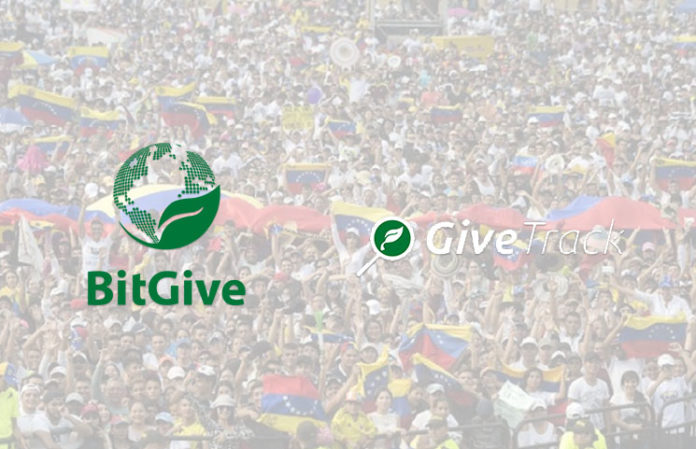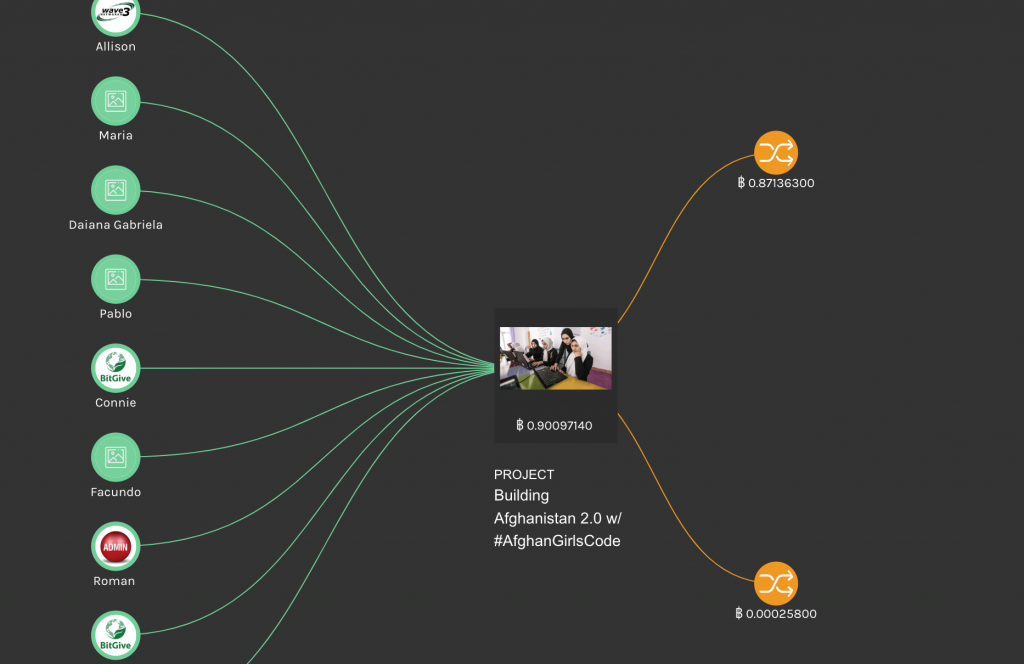Could blockchain technology revitalize the philanthropy sector?

Written by: CHAN Hei Ting, Lilian
What are your concerns when you are considering if you should donate to a charity group? Would it be based on their reputation, or the recommendations from friends? According to a survey done by the Better Business Bureau’s Give.org in 2018, it is found that among Americans, only 19 percent of them develop strong trust in charities. This shows that many of them are probably wearied of the scandals of the nonprofits or they doubt that whether their kind donations could reach the hands of the underprivileged ones. In light of this, blockchain sounds like a perfect solution to ease all these concerns. In this essay, we will look into how BitGive mobilized the blockchain system to facilitate the donation work.
In the past, people only rely on one legal entity to manage the record of transactions. Now, with the use of blockchain, everyone can get access to the ledger to track where the donations are from and where will they go. Blockchain eliminates the use of middlemen, hence the decentralization allows thousands of computers to monitor transactions made by the charities. Once the transaction is made, it is recorded in a block with a unique code to distinguish it from other blocks. The next block in the chain will contain the hash of the previous block, making it difficult for hackers to edit the transaction record because if they change a single block, they need to change every block afterwards. This requires enormous computing power and is nearly impossible to achieve. When a new block is added, everyone in the public domain can witness it. Other than the high transparency of data, the numbers are also shown in a real-time basis, meaning that you don’t have to wait until the annual report is released to check if your money has been used wisely.
The BitGive foundation promotes bitcoin donations and any charitable organization can reach them to initiate a fundraising project. For donors, you can visit the website of BitGive to trace your donations at any time. For the beneficiaries, you can save administration cost for checking the bills. Moreover, payments made could be transmitted to the wallets of nonprofits in short time. In this way, BitGive can enable its partner organization to take action to delivery resources more promptly since they save time in transferring the currency or verifying with the payment institutions by fully adopting the use of Bitcoin. (Bitcoin is perceived to be the more secure and trustworthy one among all the cryptocurrencies.) Under all these circumstances, blockchain helps charities to rebuild their goodwill and credibility, addressing all the concerns aforementioned, motivating more potential donors to take action.
You may wonder if blockchain sounds so perfect, why don’t every organizations just simply join the scheme? Indeed, there are some hidden problems as well. Firstly, the technology and operating cost is extremely high. To verify the transaction in order to include it into the block, a process called “mining” is required. In the case of Bitcoin, there is a “proof of work” system which requires all the computers in the blockchain network to solve a complex computational math problem if they want to add a block to the blockchain. Therefore, the time for adding a new block in the chain costs up to ten minutes, since computers must run certain programs. As organizations have to adopt the use of chips and processors in the algorithmic work, the operating cost is high due to the high-end equipment required. It is even said that the total electricity used for cryptocurrency mining could provide 300 million families’ usage for a year. In light of this, such large energy consumption and the associated cost become an adoption barrier for lots of global nonprofits to join the blockchain network.
Although the marketability of blockchain in philanthropy is often being doubt due to its operating complexity, the bright sides of the technology sounds persuasive enough to attract new donors. Technology takes time to improve, even though the blockchain system now appears to be costly and complicated, the ultimate goal is sacred, and it indeed aims to solve the problems rooted in the charitable industry. For instance, a new simpler system named “proof of stake” is already evolving to address the current problems aroused by the “proof of work” system. Computing professionals are always working hard to better the blockchain operation. Moreover, the idea of blockchain can actually integrate with other technologies, such as the Internet of Things (IoT) and artificial intelligence (AI) to bring novel solutions to the social sector. For example, turning things such as buildings, vehicles, and appliances into smart objects could enable us to track their status and capacity so as to see whether there are any idle items that could reach the hands of the underprivileged. The power of technology is far beyond our imagination, I believe that blockchains’ unique capabilities can help revitalize the field in the near future.
References:
- Anwar, H. (2019, November 16). The Ultimate Guide to Pros and Cons of Blo Retrieved from https://101blockchains.com/pros-and-cons-of-blockchain/
- Mining?, W. is B. (n.d.). Everything you need to know about Bitcoin mining. Retrieved from https://www.bitcoinmining.com/
- Gallippi, C. (2020, February 11). The Potential and the Reality of Bitcoin Charity. Retrieved from https://bitcoinmagazine.com/articles/the-potential-and-the-reality-of-bitcoin-charity
- Reiff, N. (2020, February 5). Blockchain Explained. Retrieved from https://www.investopedia.com/terms/b/blockchain.asp
- The future of philanthropy built upon Bitcoin and Blockchain. (n.d.). Retrieved from https://www.givetrack.org/
- Vogel, P., & Kurak, M. (2019, April 17). The benefits and drawbacks of blockchain for philanthropy. Retrieved from https://www.imd.org/research-knowledge/articles/could-blockchain-revolutionize-philanthropy/
- Yarm, M. (2019, January 31). Many Americans Don’t Trust Charities. BitGive Thinks the Blockchain Can Help. Retrieved from https://breakermag.com/many-americans-dont-trust-charities-bitgive-thinks-the-blockchain-can-help/


